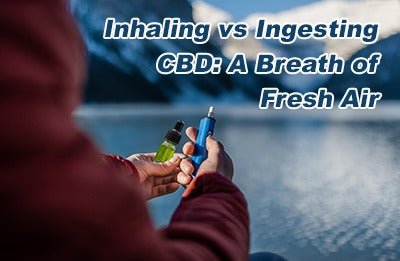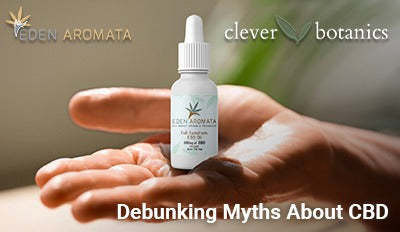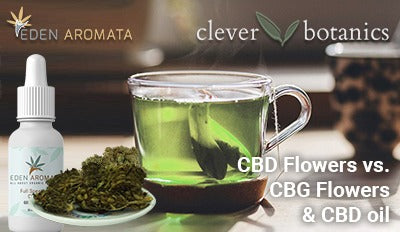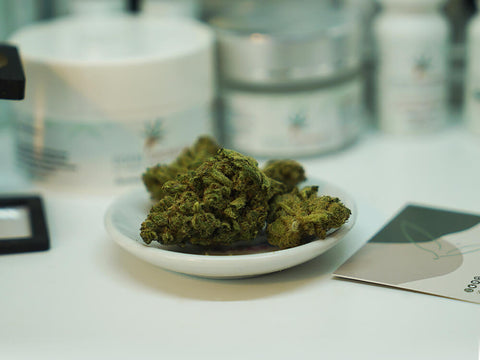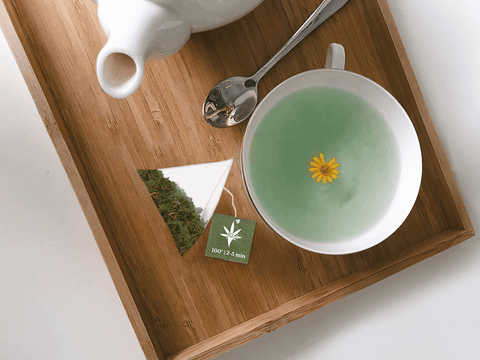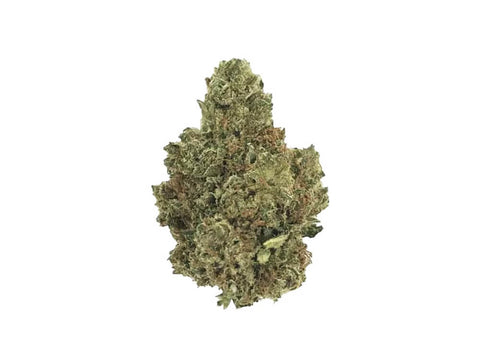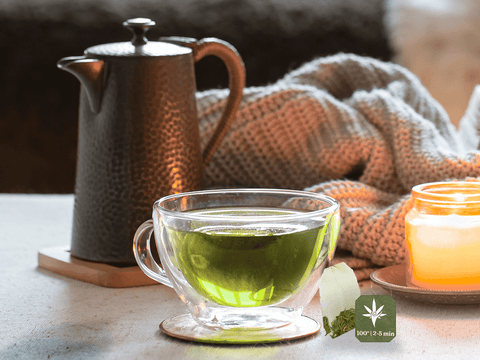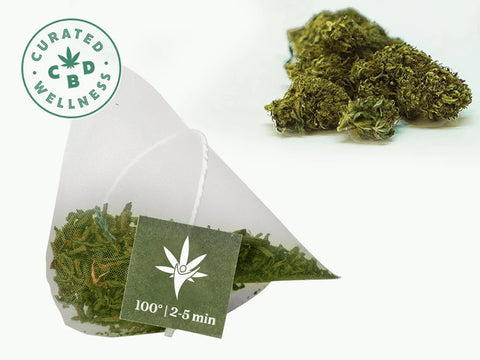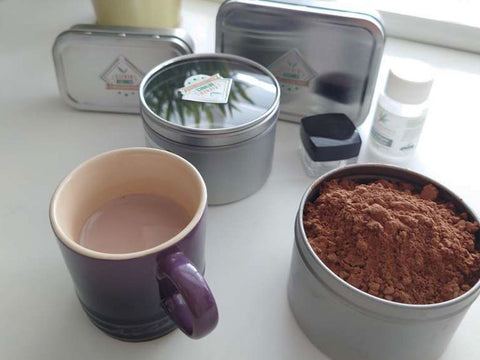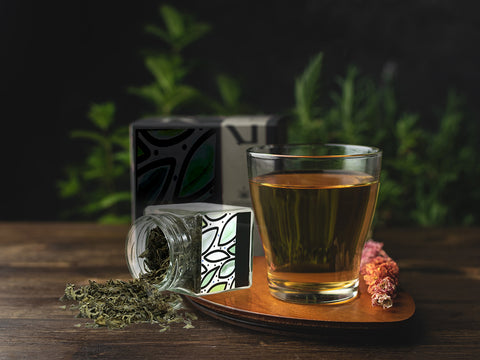CBD Oil: A Beginner's Guide to Consumption
CBD oil is a natural extract derived from the hemp plant. Unlike THC, it does not have any psychoactive effects and is non-intoxicating. CBD, CBG and other none psychoactive derivatives of Hemp and Cannabis oil has gained popularity due to its potential therapeutic benefits, including reducing anxiety, managing pain, and improving sleep quality.
CBD oil works by interacting with the body's endocannabinoid system (ECS), which is responsible for regulating various physiological processes such as mood, appetite, and pain sensation. By stimulating the ECS, CBD oil may help balance these processes and promote overall wellness.
Why Use CBD Oil?
CBD oil has been shown to have a wide range of potential health benefits. It can help reduce anxiety, relieve pain, and even improve sleep quality. Many people also use it to manage symptoms of conditions like epilepsy, multiple sclerosis, and Parkinson's disease.
One of the main reasons people turn to CBD oil is because it is a natural alternative to traditional medications, which can often come with unwanted side effects. Additionally, CBD oil is non-addictive and does not produce a 'high' like THC, making it a safe and effective option for many people.
How to Choose the Right CBD Oil
When choosing a CBD oil product, it is important to consider factors such as potency, purity, and method of extraction. Look for products that have been third-party tested to ensure their quality and potency.
Consider your individual needs when selecting a CBD oil product. If you are looking for quick relief, a tincture or vape may be more suitable. If you prefer a slower release, edibles or capsules may be a better option.

How to Take CBD Oil
There are several ways to consume CBD oil, including sublingual tinctures, capsules, edibles, and topicals. Sublingual tinctures are drops of oil placed under the tongue for quick absorption into the bloodstream. Capsules are swallowed like traditional pills and release CBD slowly over time. Edibles, such as gummies or chocolates, are ingested and can take longer to feel the effects. Topicals are applied directly to the skin and are great for localized pain relief.
Each method has its own unique benefits. Sublingual tinctures and capsules provide precise dosing and are discreet. Edibles offer a tasty and convenient way to consume CBD, while topicals are perfect for targeted relief of sore muscles and joints.
Here are some common methods for consuming CBD oil:
-
Sublingual (Under the Tongue):
- This method involves placing a few drops of CBD oil under your tongue using a dropper.
- Hold the oil under your tongue for about 60-90 seconds to allow for absorption before swallowing.
- This method is one of the quickest ways to feel the effects of CBD, typically within 15-30 minutes.
-
Capsules or Softgels:
- CBD capsules or softgels offer a convenient and precise way to consume CBD.
- Simply swallow the capsule with water as you would with any other oral medication.
- Effects may take longer to kick in compared to sublingual consumption, typically around 30-60 minutes.
-
Edibles:
- CBD-infused edibles, such as gummies, chocolates, or beverages, are a tasty way to consume CBD.
- Follow the manufacturer's recommended dosage, as the concentration of CBD can vary between products.
- Effects can take longer to manifest (usually 1-2 hours) due to digestion.
-
Topicals:
- CBD-infused creams, balms, and lotions are applied directly to the skin.
- These products are primarily used for targeted relief of pain, inflammation, or skin conditions and are not absorbed into the bloodstream.
- Effects are localized to the application area and may take some time to be noticed.
-
Vaping:
- Vaping involves inhaling CBD vapor using a vaporizer or vape pen.
- This method offers rapid onset of effects, typically within minutes.
- It's essential to use high-quality CBD vape products designed for inhalation to avoid potential health risks associated with low-quality vape liquids.
-
Smoking:
- Some people choose to smoke CBD flower, which resembles traditional cannabis but contains negligible THC.
- Smoking CBD provides quick effects but may not be the healthiest method due to potential risks associated with inhaling smoke.
-
Tinctures:
- CBD tinctures are similar to oils but are alcohol-based.
- They can be taken sublingually or added to food or beverages.
- Be cautious about the alcohol content if you have sensitivities.
Remember to start with a low dose and gradually increase it until you find the right dosage that works for you. It's essential to be patient and monitor how CBD affects you over time. Additionally, consult with a healthcare professional for personalized guidance, especially if you have any underlying medical conditions or are taking other medications.
Advantages of Full-Spectrum CBD Oil vs Broad-Spectrum CBD Oil
"Full-Spectrum CBD Oil retains all of the natural cannabinoids, terpenes, and flavonoids found in the hemp plant, including trace amounts of THC. This range of compounds works synergistically, resulting in the 'Entourage Effect,' which suggests that the therapeutic benefits of the whole plant are greater than the sum of its individual parts. Broad-Spectrum CBD Oil, on the other hand, undergoes additional processing to remove THC while retaining other cannabinoids and terpenes. While still offering many benefits, it lacks the complete profile that contributes to the Entourage Effect observed with Full-Spectrum products."
Dosage and Safety
When it comes to dosing CBD oil, it's important to start low and go slow. This means starting with a small dose and gradually increasing until you achieve the desired effects. It's also important to consult with a healthcare professional before starting to use CBD oil, especially if you are taking any medications or have any underlying health conditions.

In terms of safety, CBD oil is generally considered safe for most people. However, some people may experience side effects such as dry mouth, dizziness, and changes in appetite or mood. It's also important to be aware of the potential for drug interactions, as CBD can interact with certain medications. Again, consulting with a healthcare professional is recommended to ensure the safe and effective use of CBD oil.
Conclusion
In conclusion, CBD oil has numerous potential benefits for individuals seeking relief from various ailments, including chronic pain, anxiety, and insomnia. It can also promote overall wellness and balance in the body by interacting with the endocannabinoid system. We advice you to use Full Spectrum CBD Oil as against the Broad-spectrum products that have had extensively processed and are devoid of all the important other cannabinoids that work together to provide you with a high Entourage Effect.
When choosing a CBD oil product, it is important to do your research and select a reputable brand that provides third-party lab testing results. Start with a low dosage and gradually increase as needed, keeping in mind any potential interactions with other medications.
If you are considering trying CBD oil to solve an ongoing medical condition and you are already receiving medication, then, we encourage you to consult with a healthcare professional and see if it may be a good fit for your individual needs. With its promising potential benefits and minimal side effects, CBD oil may be a valuable addition to your wellness routine.



